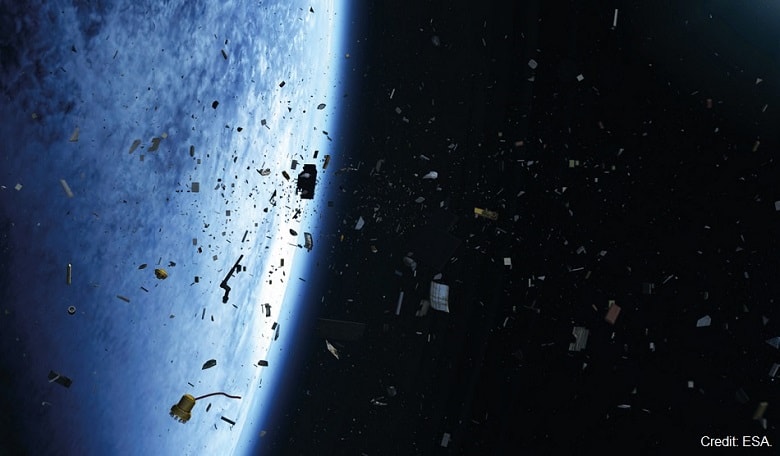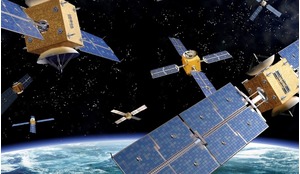The last few years have seen a considerable resurgence of interest in space activities. Mainstream media has been ablaze with talk of ambitious projects seeking to colonise other planets. More prosaically but also more realistically, business forums are actively discussing ways in which space activities can be harnessed to provide lucrative business opportunities.1
Space activity now permeates all manner of commercial, scientific and military endeavours in a way that did not seem possible at outset of the space race.2 The formidable advances in scientific and engineering expertise that have occurred since then means that attention can now turn from the technically focused “how do we do that?” to the more ecologically focused “how should we do that?”
This discussion outlines some of the key ethical and ecological challenges posed by the new era of space exploration and seeks to propose the importance of establishing key normative values to ensure both peaceful and sustainable access to space. Failure to address these hidden environmental ethical dilemmas could have significant implications for future space activities.3
Such dilemmatic choices need to be considered alongside technical and administrative matters rather than be treated as ancillary considerations. The environmental perspective is, of course, not the only area of ethical inquiry that needs attention. It is argued, however, that the need for embedding environmental ethics within space travel to ensure continued sustainable access to space presents the single most pressing area of attention given the dramatic increase in space activity and actors.
A quest for environmental values to underpin space activity contains an implicit ethical assumption that needs addressing: whether humanity should be looking to explore space at all. Opponents of space exploration tend to focus on the costs of the high profile missions.4 The fact that space exploration is already occurring, and shows no sign of abating, makes the question to some degree a rhetorical one. Yet the opposition argument is a simple one: given manifest problems here on Earth of disease, poverty and ecological issues such as dependence on fossil fuel, space exploration is, of itself an inherently unethical endeavour. Humanity, it is argued, needs to put its own house in order before spending time, effort and considerable resources on space exploration.
Space activity now permeates all manner of commercial, scientific and military endeavours in a way that did not seem possible at outset of the space race
Space ethicists have offered the view that space exploration is not only desirable; it is a duty that we, as a species, must undertake in order to secure the survival of humanity over the longer term.5 Expanding both the resource base and, eventually, the habitats available for humanity means that any expenditure on space exploration, far from being viewed as frivolous, can legitimately be rationalised as an ethical investment choice.
The argument against any space activity ignores the obvious advantages that humanity has gained from space activity, such as the development of sophisticated yet reliable communications networks, meteorological satellites and navigational aids such as GPS. The extension of this is that space exploration will continue to bring benefits to humanity, possibly in the form of minerals and other resources extracted from extra-terrestrial environments, with the potential to preserve the resource base of the Earth and provide new and more abundant sources of minerals and energy.
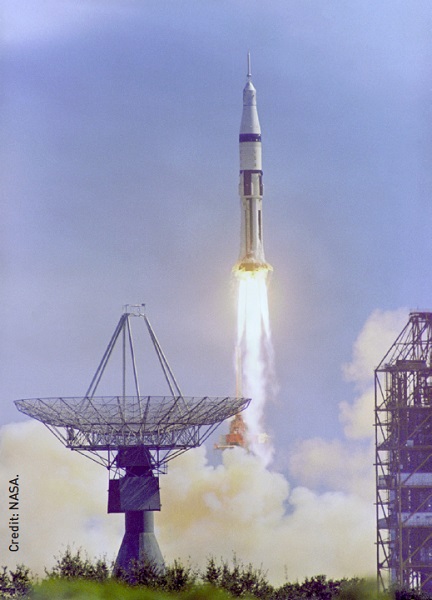 Serious investment in major space projects is what the economy really needs.
Serious investment in major space projects is what the economy really needs.
The notion of a duty to explore space, however, conflates two different moral paradigms: the deontological (it is our duty to do this) and consequentialist (because the ends/outcomes are so beneficial). Both positions are not without their difficulties because, although there are some estimates, it is not yet known what the scale of the exact cost will be. The duty argument also rests on another assumption: a duty cannot exist unless it is towards someone or something, which in this case is unclear. Is it to humanity? If so that can only work if the assumption underpinning everything is the threat to humanity.
Even if we do establish a moral case for space exploration, this is only the first step on the journey to understanding the requirement for values underpinning space activities. There are fundamental questions that need addressing, such as how humanity should conduct itself when exploring space. Some are beyond the scope of this discussion and include consideration of the physical and psychological issues facing crewmembers embarking on interplanetary travel.6 Related to this are the values underpinning human exploration and colonization: questions of the conditions in which the first colonists would have to live and also the effect that prolonged exposure to an alien biosphere would have on the humans themselves. It is suggested that such anthropological questions are worthy of independent inquiry of themselves, and indeed space agencies have already started to conduct research into both the psychological and physiological impact of space travel upon human beings7.
This issue of environmentalism and awareness of the fragility of the space environment are ethical concerns that cut across a number of different yet interrelated areas of concern. There are those ventures for which the technology does not yet exist to an appropriate standard of certainty and reliability: terraforming of alien biospheres, the physical colonisation of other planets and the ability to mine, refine and return minerals and resources from other celestial bodies. For these activities, humanity has the luxury of time to engage in a broad philosophical discussion. There are, however, also activities that are already underway, both within the Earth’s orbit and beyond; such as the boom in satellite communications technology, the increase in private sector space activity and the ongoing exploration of celestial bodies within the solar system by robotic probes. These activities may well have the more pressing need for analysis, but may also benefit from emerging norms of acceptable behaviour that form a broad consensus.
This side of paradise
The dangers inherent in relying on voluntary codes to protect ethical values are clear.
Addressing the environmental impact of human space activity is one area of inquiry that has seen perhaps the most profound shift in normative values over the course of human exploration of space.8 Such activities are, by their very nature, intrinsically invasive and will make an indelible imprint upon pristine extra-terrestrial environments.9 Once an alien environment has been contaminated, be it by a robotic probe or by human settlers, the environment has been corrupted irrevocably. This could sabotage any scientific study by providing a false positive reading of life. As a NASA spokesman once wryly observed, the best way to find life on another planet is to import it from Florida.10
There are also broader environmental issues, as yet unforeseen, which could have profound repercussions for any life that may exist in these as yet unexplored environments. The related but obverse concern is the potential for importing an abundance of resources from outside the previously closed terrestrial biosphere. The contamination of Earth by deadly extra-terrestrial pathogens has been the staple of science fiction for many years, but there is also a need to consider the delicate balance that exists within this aforementioned closed system. A different but interrelated issue surrounds the introducing of a surfeit of minerals from outside the earth. This could have unforeseen consequences for the Earth, upsetting the ecological balance that is already under strain from the consumption of indigenous resources.11
The issue of planetary protection, in respect of both the threat posed to alien environments from Earth-bound contaminants and the threat from extra-terrestrial microorganisms to the Earth, is an area that has been the subject of much discussion. A consensus has emerged via the Committee for Space Research (COSPAR) and the Planetary Protection policy 12 regarding the different levels of protection to be afforded to planets themselves and to any samples returned to Earth. Broadly speaking, the level of protection depends upon the likelihood of the planet concerned being able to support life. Missions to celestial bodies which are likely to be of biological interest must observe more stringent decontamination procedures than those targeting bodies which current scientific thinking would judge to be barren, such as the Moon. This is very much a top-down regulation approach that tends to run counter to the idea of values as a pre-eminent means of looking after the space environment
Notwithstanding this emerging international consensus, there have been several examples where missions have failed to meet the COSPAR standards.13 Despite being recognised as the international standard, they do not have the binding force of international law and as such, they may well be the first casualty of cost cutting exercises for those space actors looking to embark on cut-price planetary exploration. It has been suggested that the COSPAR guidelines should be given the force of law as a means of embedding the ethics of planetary protection.14 This, of course would have longer-term ramifications for those projects seeking to colonize planets such as Mars, where COSPAR guidelines are extremely onerous in terms of the level of protection required.15
Such legislation would, however lay an important foundation for projects in the future that sought to permanently alter the characteristics of a planet by terraforming. It would also ensure that private companies seeking to mine celestial bodies do not sidestep voluntary guidelines in the hunt for profit.
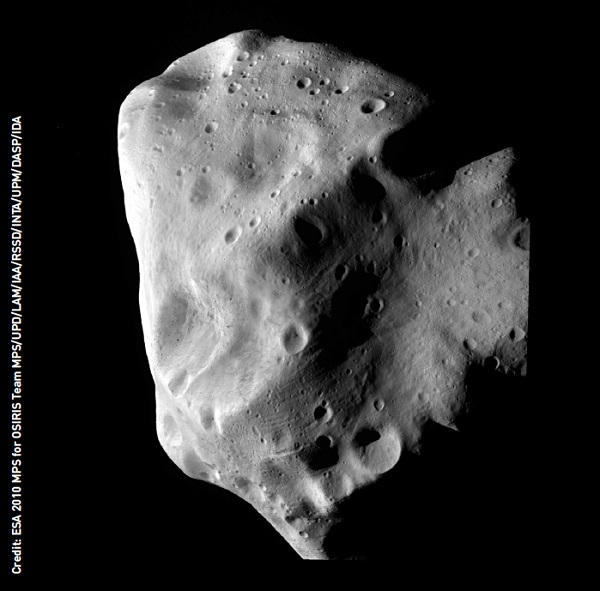 Some suggest that the reason to explore space is the mineral resources that may be found on the asteroids. This is asteroid Lutetia, as seen by the Rosetta spacecraft.
Some suggest that the reason to explore space is the mineral resources that may be found on the asteroids. This is asteroid Lutetia, as seen by the Rosetta spacecraft.
Whilst a normative position may be emerging in respect to the COSPAR planetary protection, there is a more pressing environmental concern with respect to the congestion of the orbit of the Earth with debris from nearly 60 years of continuous now becoming acute, with a dramatic increase in space activity, the orbit of the Earth is going to become ever more crowded. It has been identified that there are over 500,000 pieces of man made, non-functioning space debris, travelling at high speed which could seriously damage or destroy large objects such as functioning satellites and even space stations16. Whilst undoubtedly an ethical issue, there is, at least a consensus that action is necessary. Most of the attempts to ensure action on Space Debris, both in terms of limiting the impact of future missions (so called debris mitigation) and the harder task of removing detritus caused by previous missions (debris remediation). The UN, after considering the issue at great length has issued debris mitigation guidelines.17 There is also an intergovernmental agency space debris co-ordination committee (IADC), which has been convened to address the issue.18
Clearly, there is recognition that this is a problem that affects future sustainability of space activities. The legal framework to deal with debris currently can best be described as ambiguous.19 Non-binding codes of conduct and guidelines provide a lodestar for normative behaviour, but these soft mechanisms may be of little use in persuading private actors, more focused on return on investment and potential profits than on embedding ecological sustainability. As Yasushi Horikawa, former chair of the UN Committee on the Peaceful Uses of Outer Space states: “All space actors must behave responsibly to ensure sustainable use of outer space. For this again, international cooperation is necessary and advanced space-faring nations should consider capacity building for the long-term sustainability of outer space.”20
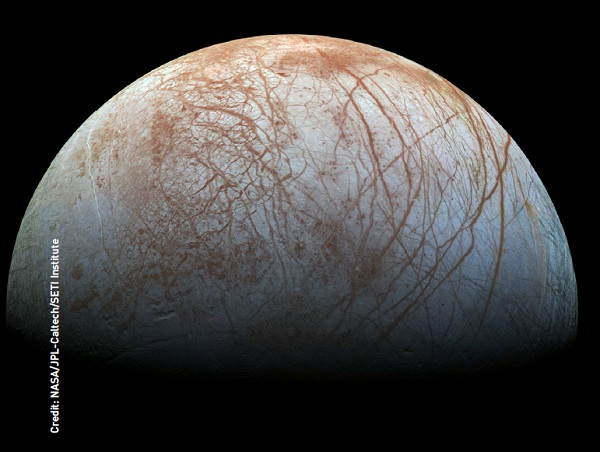 The level of planetary protection is based on how biologically active a world could be. Europa, with its sub-surface ocean would require the highest levels of protection.
The level of planetary protection is based on how biologically active a world could be. Europa, with its sub-surface ocean would require the highest levels of protection.
Recognizing the problem of debris as an environmental imperative is the first step towards a solution, but the space faring community needs to embrace a wider commitment to environmental values. It is not certain that this can be accomplished merely by non-binding agreements and soft provisions and it may be that legally binding duties in this respect need to be imposed on those engaging in space activity.21
The vacuum of law
Perhaps the most pressing reason for trying to establish a core ethical position located around an ecological approach to space is the absence of binding law on the subject. The exploration of space was, at the outset driven by twin competing power blocs and it was against this backdrop that space law was first established. While ascribing motivations to states tends to lead to oversimplification, it is clear that the ‘primary goal of the architects when first negotiating space law principles was security.’22
The final treaty, The Treaty on Principles Governing the Activities of States in the Exploration and Use of Outer Space including the Moon and Other Celestial Bodies know colloquially as The Outer Space Treaty (OST)23 has been widely ratified by nations24 and is recognised as providing the central trunk of space law. From this early formulation of space law there was a well-defined acceptance by states concerning the prohibition of national appropriation of outer space and claims of sovereignty in respect of the Moon and other celestial bodies.25 It was also recognized that there was a need for outer space to remain peaceful (if not entirely demilitarised)26 and the bestowing upon states of responsibility for their own space activities and liability for any objects launched (Articles VI to VIII).
The environmental focus of the OST is found in Article IX and provides that states must conduct their space activities, ‘..so as to avoid their harmful contamination and also adverse changes in the environment of the Earth resulting from the introduction of extra-terrestrial matter and, where necessary, [to] adopt appropriate measures for this purpose.’
In practice the protection offered by Article IX is extremely limited. Environmental space lawyers have criticised the treaty as being unduly interested in protecting states’ activities rather than protecting the space environment27. It is significant that the contamination must be ‘harmful’ and the scope of this is not defined. International space law has largely neglected to address the environmental issues affecting space. This atrophy is reflected in the regulation of terrestrial environmental issues, where it seems that achieving the necessary consensus for a binding treaty (with appropriate punitive sanctions) is currently beyond the grasp of the international community.28
The management and regulation of space activity that is harmful to the fragile environment has, therefore, been restricted to the non-binding, voluntary codes described above in respect of planetary protection and space debris mitigation. The dangers inherent in relying on voluntary codes to protect ethical values are clear. Without a legally binding framework based on harmonized practices and built on an international consensus, each individual actor will pursue its own agenda, forsaking environmental considerations for either profit or national interest. The subsequent damage to the fragile environment risks seriously impeding sustainability.
A New Hope?
The ending of the cold war saw a radical realignment of the geopolitical world order with an obvious impact on space activities. The 21st Century has seen the appearance of an increasing number of new space companies working both in partnership and in competition with established and emerging state space powers.29 Accordingly, the exploration of space is now open to a broad spectrum of actors pursuing a broad range of interests.30 Without the previous ideological imperatives driving exploration forward,31 it is perhaps tempting to view space as either a potentially limitless trough at which humanity can slake its thirst for minerals, or a frontier town to be tamed and colonised. I suggest that embracing either of these approaches would represent something of a missed opportunity.
The exploration of space is being driven by factors other than a race to showcase competing ideologies and there exists an opportunity for dialogue to ensure an orderly and equitable exploration of space, with an underpinning ecological ethic leading to sustainable activity. By embedding planetary protection as a legal as well as an ethical imperative, both present and future projects will have to integrate planetary protection measures from the initial design concept and shape the missions to recognise this environmental imperative.
A quest for environmental values to underpin space activity contains an implicit ethical assumption that needs addressing: whether humanity should be looking to explore space at all.
Similarly, the emerging consensus on space debris needs to be channelled away from voluntary codes and into more robust, legally binding measures. The move from state actors to a multi-sectored space activity poses difficult regulatory questions and that will need to be addressed. Ethicists will point to the pitfalls of relying solely on regulation and the dichotomy between regulation and values-based approaches. In the current area of space activity, regulation-based approaches have been shown not to work. One way to try and make it work is to go even further down that route and enshrine the regulation in a binding treaty, giving it the force of law. Alternatively humanity can look for values and try to create a shared understanding that becomes codified through regulation (rather than derived from it). Fundamentally, the different values that underpin state activity and commercial activity will need to be reconciled with the need to respect the fragile space environment if space activity is to be sustainable for future generations.
Thanks are due to Dr. Michael Macaulay of Victoria University of Wellington, New Zealand, for his comments and suggestions on the first draft of this article. Any errors are, however, my own.
References:
1: Although it draws upon data from 2009, this report from the US Federal Aviation Authority is instructive as to the existing impact and the potential for growth in commercial space activity http://www.faa.gov/news/ updates/media/Economic%20Impact%20Study%20September%20 2010_20101026_PS.pdf
2: See http://www.bloomberg.com/news/features/2015-01-22/the-newspace- race-one-man-s-mission-to-build-a-galactic-internet-i58i2dp6 for an example of the way in which space activities are developing in unpredictable directions.
3: See Weeden, B. (2011). Overview of the legal and policy challenges of orbital debris removal. Space Policy, 27(1), pp.38—43 for a discussion on the potential risk to space activity in Earth orbit from a cascade effect of space debris known as the Kessler Syndrome.
4: Claude Lafleur, Costs of US piloted programs , The Space Review, March 8, 2010. Lafleur states that the Shuttle program cost a total of $198 billion, spread over 41 years (from development stages in 1972 to the final flight in 2012). Each shuttle flight cost around $1.4 billion. Even more expensive were the moon landings, with a total bill in excess of $100 billion and each landing costing around $18 billion.
5: James Schwartz, (2011), ‘Our Moral Obligation to Support Space Exploration’, Environmental Ethics, Vol 33, 67-88
6: For a discussion on the potential ethical issues relating to crew psychology on a trip to Mars, see Chris Chambers (2013), Mars One: The psychology of isolation, confinement and 24-hour Big Brother, The Guardian, September 9, 2013 http://www.theguardian.com/science/headquarters/ 2013/sep/09/neuroscience-psychology
7: For further details see BBC TV (2013), ‘Man on Mars: Mission to the Red Planet’ http://www.bbc.co.uk/programmes/b03vpc74
8: See Nicholas Welly (2010) ‘Enlightened State Interest: A legal framework for protecting the “Common Interest of All Mankind” from Hardinian Tragedy’, Journal of Space Law, Vol. 36, pp. 273
9: For a further discussion on the extent to which life should be expanded and propagated in future extra-terrestrial environments, see Michael. N. Mautner, (2009), ‘Life centered ethics, and the human future’, Bioethics, Vol 28, No. 8, pp. 433-440.
10: Butler, J. (2006), ‘Unearthly Microbes and the Laws Designed to Resist Them’, Georgia Law Review, Vol 41, at pp.1355-1394 at p.1366
11: See Robinson, G. (2006). Forward Contamination of Interstitial Space and Celestial Bodies: Risk Reduction, Cultural Objectives, and the Law/ Zur Kontamination des Weltraums: Risikobeschrankung, Kulturelle und Rechtliche Fragen/La Contamination de l’Espace Extra-Atmospherique: Reduction des Risques, Questions Culturelles et Juridiques. ZLW, 55, p.380.
12: For full details see https://cosparhq.cnes.fr/sites/default/files/ pppolicy.pdf
13: Butler, J. (2006), ‘Unearthly Microbes and the Laws Designed to Resist Them’, Ga. L. Rev., 41.
14: See Butler, above (n.13) at p.1389.
15: For discussions on the practicalities of terraforming Mars see http:// www.room.eu.com/articles?id=28
16: Hobe, S. (2012). Environmental Protection in Outer Space: Where we stand and what is needed to make progress with regard to the problem of space debris. Indian Journal of Law and Technology, 8, pp.1-10.
17: Space Debris Mitigation Guidelines of the Committee on the Peaceful Uses of Outer Space, as annexed to UN doc. A/62/20, Report of the COPUOS (2007), no. 1,para. 1.
18: The stated aim of the Inter Agency Space Debris Coordination Committee (see http://www.iadc-online.org) is an international governmental forum for the worldwide coordination of activities related to the issues of man-made and natural debris in space. The primary purposes of the IADC are to exchange information on space debris research activities between member space agencies, to facilitate opportunities for cooperation in space debris research, to review the progress of ongoing cooperative activities, and to identify debris mitigation options.
19: See Hobe, above (n.16)
20: Horikawa, Y. (2014), ‘ICoC and Long Term Sustainability of Outer Space Activities’ In: R. Rajogopalan and D. Porras, ed., ‘Awaiting Launch: Perspectives on the Draft ICoC for Outer Space Activities’, 1st ed. www. orfonline.org: Observer Research Foundation, pp.19-26 at p.26
21: For an excellent discussion on the need for ecologically sound practices in space exploration see Sergey Krichevsky “Green Space?” available at http://www.room.eu.com/articles?id=29
22: Blount, P. (2012). Renovating space: the future of international space law. Denver Journal of International Law & Policy, Vol 40(1-3) at p.515
23: The 1967 OST was adopted by the General Assembly of the UN on 19 December 1966 by virtue of Resolution 2222 (XXI). It opened for signature on 27 January 1967 and entered into force on 10 October 1967
24: As of 1st January 2014, 103 States have ratified the OST with a further 25 non-ratified signatories, according to the UN Office for Outer Space Affairs (OOSA) http://www.oosa.unvienna.org/oosa/en/SpaceLaw/treatystatus/ index.html
25: Article II of the OST 1967 states “Outer space, including the Moon and other celestial bodies, is not subject to national appropriation by claim of sovereignty, by means of use or occupation, or by any other means.”
26: Article IV of the OST prohibits outright the positioning and use of Nuclear weapons and Weapons of Mass destruction in orbit. As with much of the OST, this provision has been criticized for tacitly permitting a substantial range of other military activity. See Blair Stephenson Kuplic (2014), ‘The Weaponization of Outer Space: Preventing an Extraterrestrial Arms Race.” North Carolina Journal of International Law and Commercial Regulation, Vol 39, p.1123
27: Lotta Viikari, (2008). The environmental element in space law. 1st ed. Leiden: Martinus Nijhoff Publishers, p.60
28: An example of how difficult consensus is to achieve can be found in the discussions on the Lima Climate Change Conference in December 2014 at http://www.bbc.co.uk/news/science-environment-30468048
29: See http://www.thespacereview.com/article/2717/1 where Jeff Foust discusses the development of commercial cargo provision for NASA with various companies.
30: For further articulation of the broadening scope of commercial activity see Derek Webber, “Commercial Space Exploration: No Longer an Oxymoron”, The Space Review, 9 February 2015 available at http://www. thespacereview.com/article/2692/1
31: Joanne Gabrynowicz, (2004). Space law: Its Cold War origins and challenges in the era of globalization. Suffolk UL Rev., 37, p.1041





